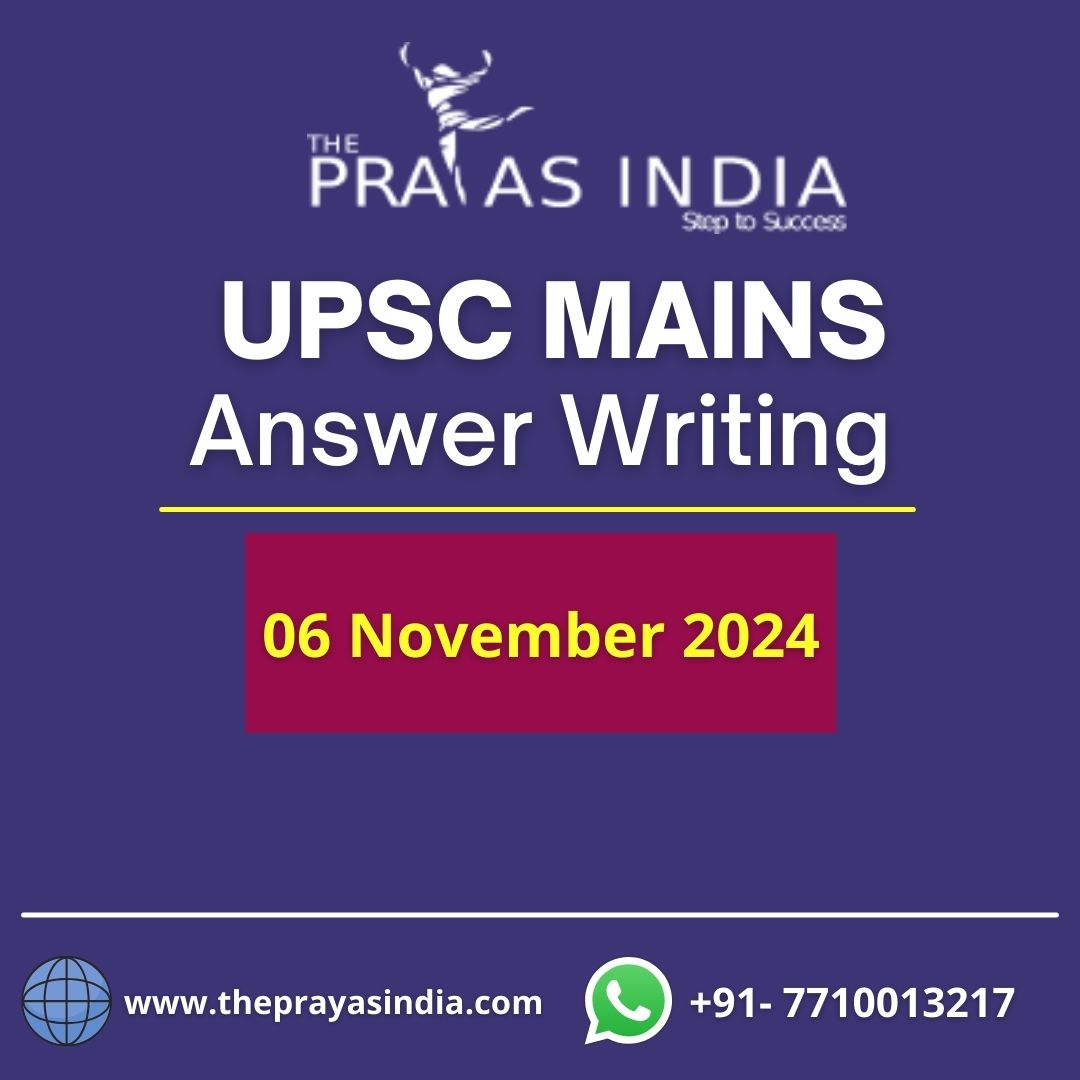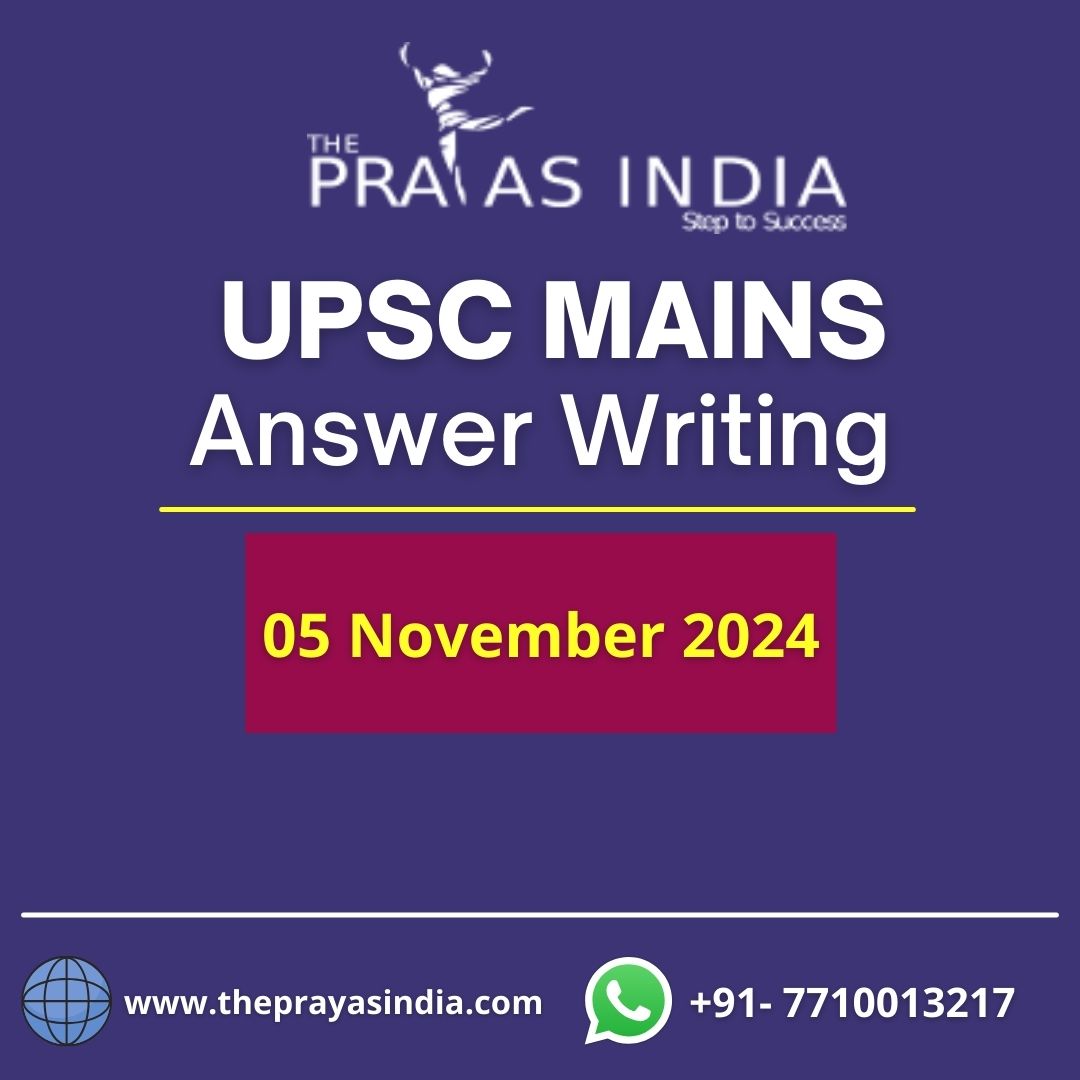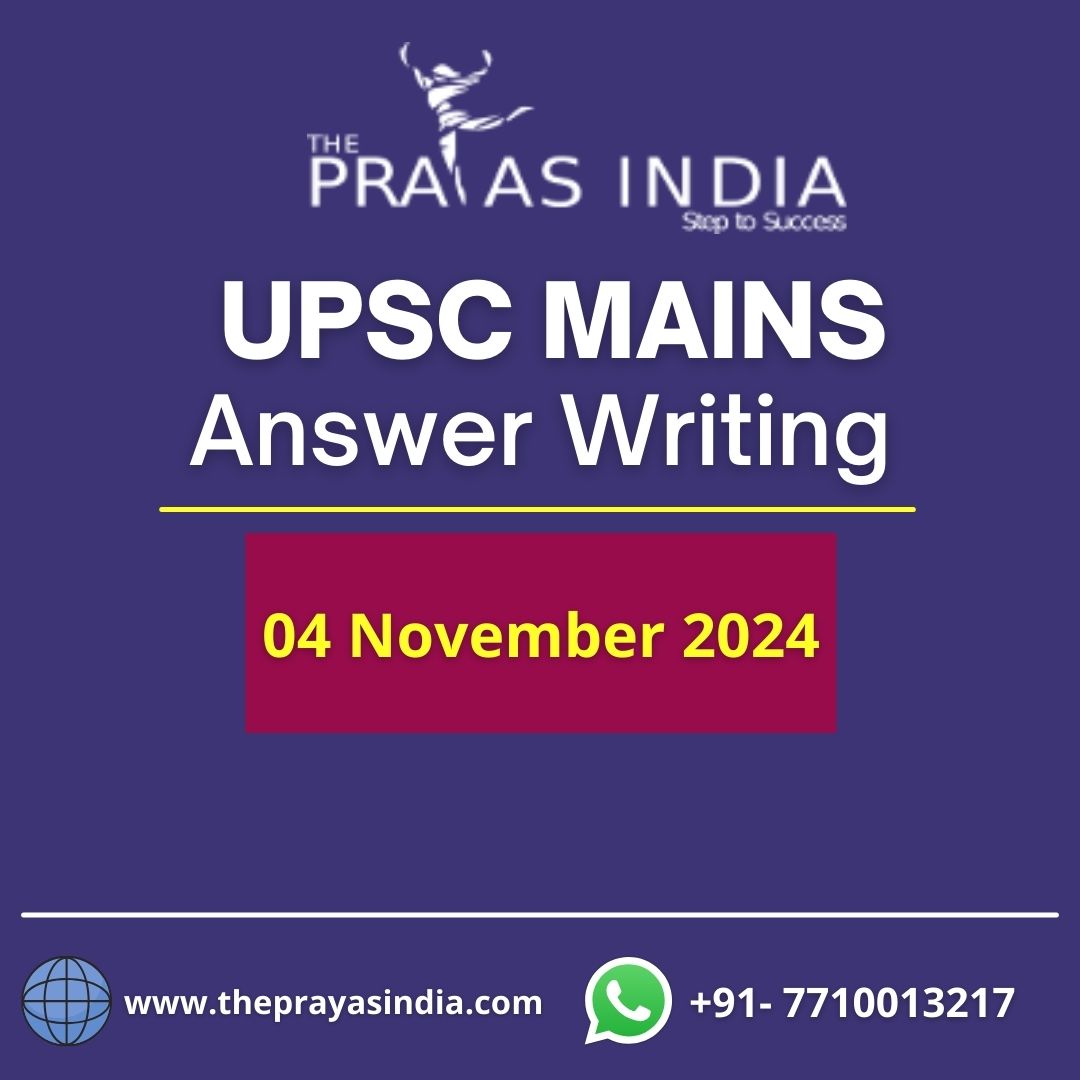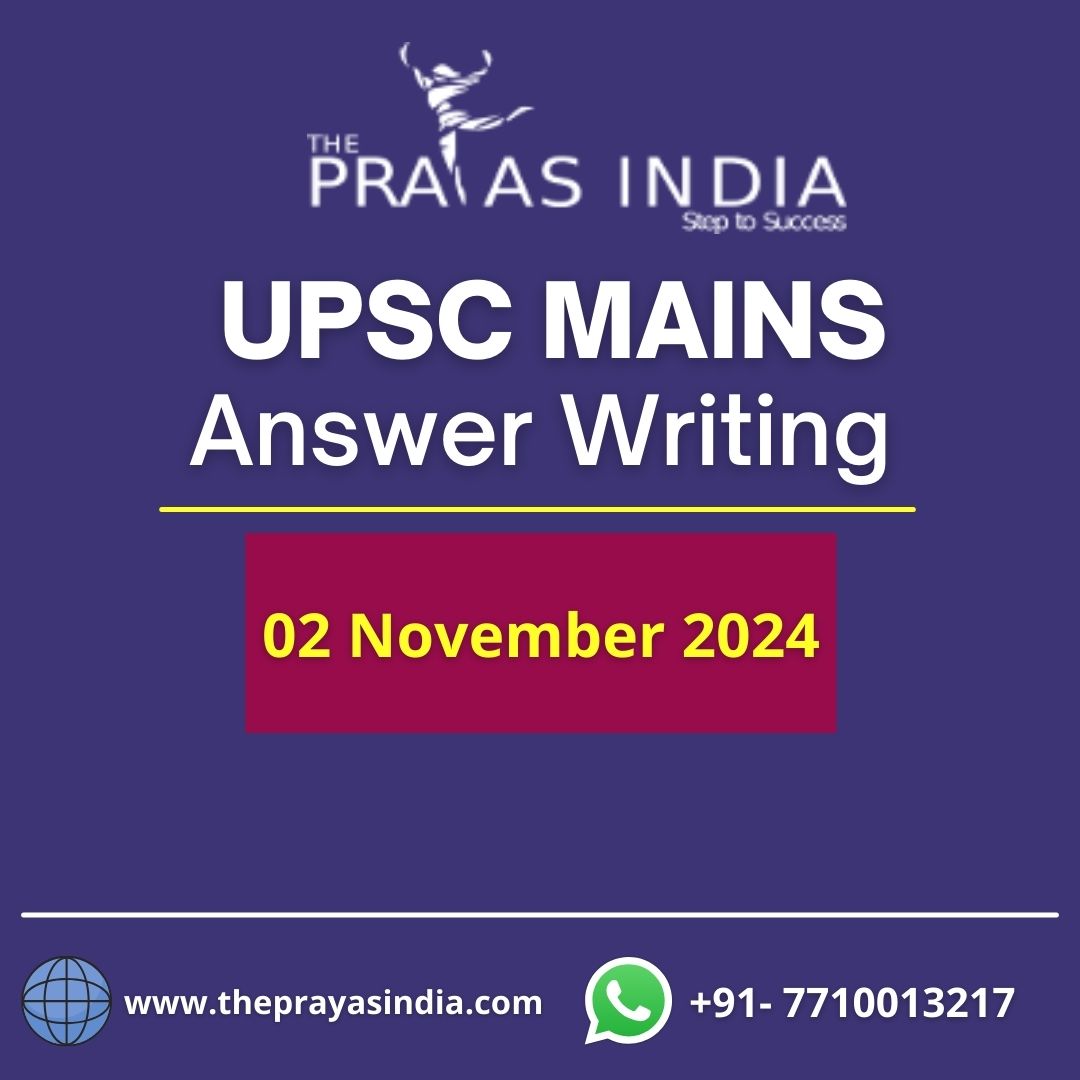DAILY QUESTIONS & MODEL ANSWERS
Q1. Through Operation Cactus, we showed our effectiveness and quick-mounting prowess. Additionally, it significantly raised India’s profile. Comment. (250 words)
Paper & Topic: GS II – International Relations
Model Answer:
Introduction:
- In 1988, India launched a surprise military operation known as “Operation Cactus” in the Maldives in response to a failed coup attempt and President Maumoon Abdul Gayoom’s cries for assistance.
Body:
Operation Cactus’ context:
- The capital of the Maldives, Male, was rapidly taken over by the more than 60 hired killers sent by PLOTE.
- Despite requesting military assistance from other nations, including India, the former president Maumoon Abdul Gayoom managed to avoid capture.
- Gayoom requested it, and Rajiv Gandhi, the prime minister, granted it by sending naval warships and paratroopers to the island republic.
- Operation Cactus started on November 3, 1988, a few hours after the call for assistance.
- The President was saved by Indian paratroopers, who then handed back control of the capital to the Maldivian government.
Operation Cactus’ participation by India and its defence:
- Without Indian help, other countries might have been convinced to join the conflict or perhaps to set military bases in the Maldives, necessitating Indian involvement in the attempted coup.
- It would not have been in India’s best interests to have the Maldives so close by.
- This incident put India’s hopes for general security in the Indian Ocean in jeopardy.
- Due to their strong relations, Sri Lanka was unable to accept the possibility of sharing an Indian Ocean year with two competing governments as neighbours. India then launched “Operation Cactus,” a military operation.
- It was done in order to preserve the security environment for the larger Indian Ocean region, which would be in danger if the Maldives coup attempt were to succeed. The Maldives were on a crucial maritime communication route.
- Several of the mercenaries were brought back to India after the shipment was taken in July 1989 so they could be tried in the Maldives. All of them received death sentences, but President Gayoom sentenced them to life in jail in response to pressure from India. India’s credibility was considerably boosted by this.
The success of the process and the outcomes:
- Operation Cactus’ success proved India’s capacity to uphold stability in Asia. This was before India began serving as an Indian Ocean region provider of security.
- International leaders like Margaret Thatcher and US President Ronald Reagan praised India for taking swift, determined action.
- With Operation Cactus, we proved our worth and ability to mount a successful operation quickly. Additionally, it significantly raised India’s profile. Everyone understood that we had a responsibility as the local police force.
- The security agreement between India and the Maldives was tightly aligned as a result of the development.
- India has helped the Maldivian armed forces improve their capabilities. Since then, India has served as the training ground for thousands of Maldivian National Defense Force (MNDF) soldiers.
Conclusion:
- But in 1988, the president of the Maldives asked India for military assistance. India responded to Nicaragua as a responsible neighbour by acting promptly and within the confines of legality as established by the International Court of Justice (ICJ). The United States, the United Kingdom, and other countries recognised India’s importance and influence in the Indian Ocean region. Following Operation Cactus, India’s standing as a responsible country that advances global security and peace was elevated.
Q2. Because of their intrinsic political nature, international multilateral institutions frequently fall short of appropriately addressing both real global issues and shifting power dynamics within their own organisations. Analyse (250 words)
Paper & Topic: GS II – International Relations
Model Answer:
Introduction:
- The covid outbreak served as a sombre reminder of the politicization-related collapse of international organisations like the WHO, UNSC, IMF, and others. Chinese interference in the World Bank’s EODB index manipulation and the World Health Organization’s clandestine submission to Chinese leadership in the pandemic response are two examples of this. International institutions are political by definition, but the way China has challenged the post-World War II multilateral order shows a dramatic shift in the balance of power.
Body:
International organisations’ power hierarchies have changed:
- China-US Cold War: Because the US and China, the two superpowers, are unable or unwilling to alter the institutional foundations of the multilateral system, it is disintegrating.
- The US wants a multipolar Asia but a unipolar world, whereas China wants a multipolar world and a unipolar Asia.
- The Organization of the United Nations The UNSC is now aligned into P3 and P2, after being dysfunctional for a long period (Russia-China axis).
- International efforts to maintain peace and security, such as the civil wars in Syria and Yemen, were hampered by UNSC indifference.
- World Trade: As a result of the United States’ obstruction of fresh appointments, the WTO dispute settlement body is currently inactive.
- The Doha Development Agenda has not yet come up with a resolution because there is no agreement.
- Any deal involving e-commerce, digital trade, sustainable trade, etc. has become more difficult due to the obvious disparity between industrialised and developing countries.
- China’s hegemony One of the key factors influencing the worldwide disease epidemic was China’s influence over the WHO’s response to the COVID-19 pandemic.
- Due to the COVID-19 outbreak’s secrecy and obstacles to thorough investigations, multilateral organisations have fallen short of their obligations.
- Climate change and funding: Due to wealthier countries’ reluctance to provide financial support for combating climate change, important concerns impacting small island states, such as submersion and relocation, are disregarded.
- Major industrial countries have refused to accept the common but differentiated duty, and the Conference of Parties to the Paris Agreement has repeatedly failed to enact measures to protect it.
Multilateral organisations must be reformed to promote equality in them:
- The principles of international law, democracy, equity, and justice should be promoted through multilateralism, as well as the rights to respect one another, development, and non-interference in the internal affairs of other nations.
- Although the UN has long needed reforms, the Security Council still needs to be altered. The proposed reform therefore calls for both expanding the UNSC’s membership and guaranteeing equitable representation.
- WTO reforms The Appellate Body’s protracted deadlock over the unilateral measures must be resolved as soon as is practical because they seriously imperil the WTO’s continued survival.
- Climate finance: To enable broader and more meaningful engagement of poor and least developed countries, all governments should work together to make global governance mechanisms more inclusive, representative, and participatory.
- The USA should have less voting rights in international financial institutions like the IMF since it effectively has a veto over the organization’s decision-making procedures.
- Multilateral organisations’ responsiveness, effectiveness, democracy, objectivity, action- and solution-focus, and credibility all need to be improved.
Conclusion:
- The US and China have little to no interest in upsetting the existing order of things, given how quickly the world is changing. Thus, plurality is quickly becoming one of the more crucial methods that middle powers might use to close the gap. In this way, one can bribe the US while putting up a fight against China. At this point, middle powers are shaping the calculus of variable geometries. This is an opportunity for New Delhi to assume the initiative in determining the features of the new global order.




